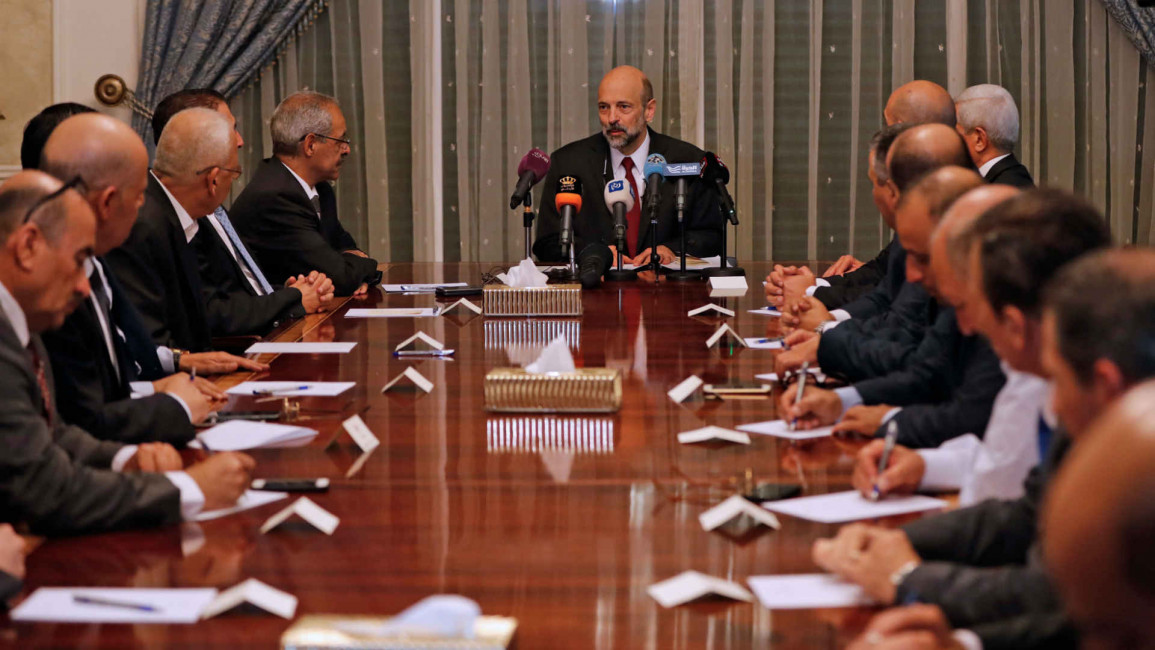Jordan swears in new government following cabinet shakeup
Jordan's new government was sworn in on Thursday, following mass protests over IMF-led price hikes forced the previous prime minister's resignation.
The new administration led by Harvard-trained economist Omar al-Razzaz has already withdrawn the contested tax law, which brought thousands of Jordanians to the streets to protest against the reforms.
The government shake-up has seen half the cabinet's 28 ministers replaced, with Foreign Minister Ayman Safadi and Interior Minister Samir al-Mabidin among those keeping their jobs.
The defence portfolio goes to Razzaz, while new ministers were appointed in the areas including finance, planning, international cooperation and regional development.
Seven women make up the new cabinet, a record for Jordan.
Since being asked to form a government by King Abdullah II on 4 June, Razzaz said he had been engaged in talks with different parties to "reach a fair taxation system for everyone".
Twitter Post
|
Austerity measures have seen prices of basic necessities rise across the kingdom, culminating in angry protests over tax proposals - later withdrawn - that forced prime minister Hani Mulki to resign on 4 June.
Jordan blames its economic woes on instability rocking the region and the burden of hosting hundreds of thousands of refugees fleeing war in neighbouring Syria.
The World Bank says Jordan has "weak growth prospects" this year, while 18.5 per cent of the working age population is unemployed.
On Sunday the demonstrations were followed by a crisis meeting with Saudi Arabia, the UAE and Kuwait, and concluded with a pledge to provide $2.5 billion in aid.
Qatar followed up with an offer of $500 million in investment and promised to create 10,000 jobs for Jordanians.
Agencies contributed to this report.
Follow us on Twitter: @The_NewArab



